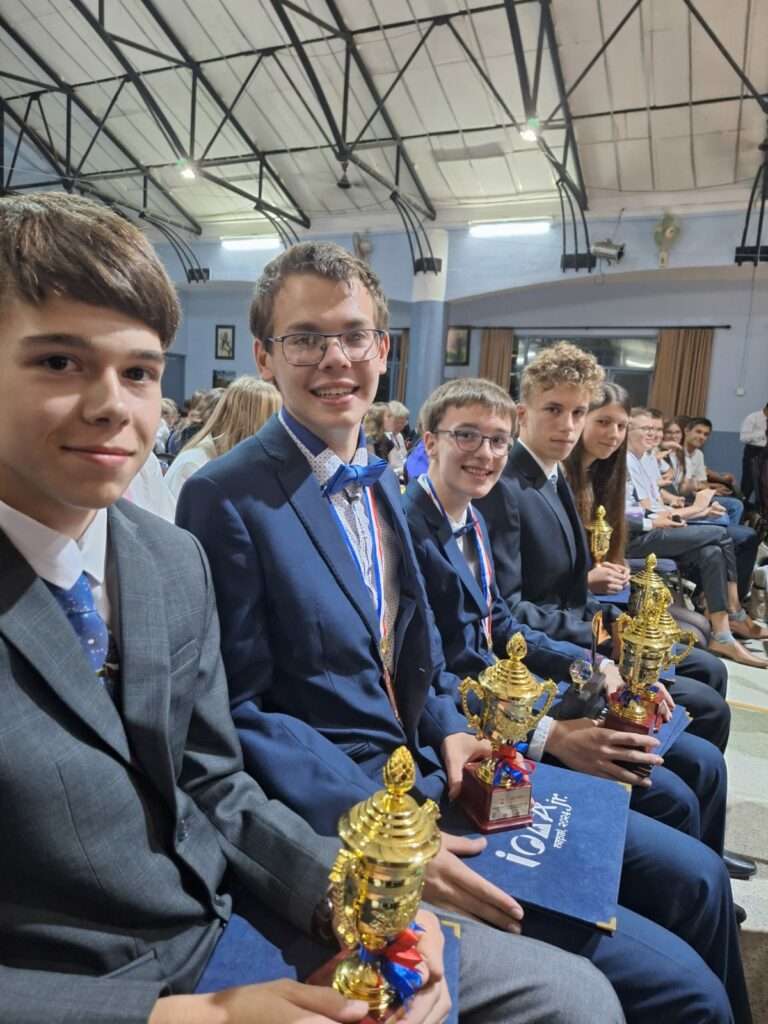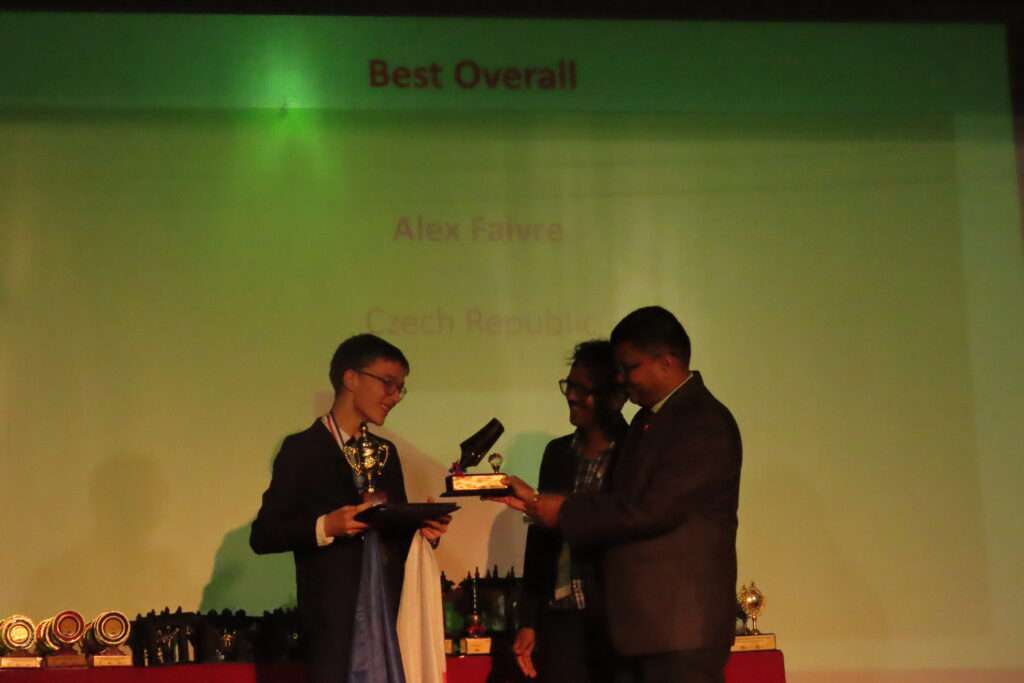Czech team after the closing ceremony. From left: Václav Pavlík (teamleader), Marie Hrubá (honorable mention), Alex Faivre (gold medal, best theory, overall winner), Tadeáš Smička (honorable mention), Petr Barták (bronze medal), Marek Nedoma (honorable mention), Radka Křížová (teamleader)
They say that it is difficult to make it to the International Olympics. To come away with an honourable mention or even a medal is a truly exceptional achievement. But this year, the Czech team at the International Junior Olympiad in Astronomy and Astrophysics (IOAA Junior) managed to do more than that. Czech student Alex Faivre dominated the competition and became the overall winner in a competition of students from 19 countries.
This year's third edition of IOAA junior - an international astronomy competition for students under 16 years of age - was held From October 3 to 10 in the Nepalese capital Kathmandu, almost within sight of the highest peaks of the Himalayas. The Czech team consisted of 5 best placed competitors from the Central Round of the Astronomy Olympiad category EF, accompanied by two leaders. A long night of travelling followed: first a flight to Dubai and from there to our destination, where our team was welcomed by the local organisers.
The competition was held in total in three rounds. Participants were firstly awaited by the traditional warm-up team competition, during which they also had the opportunity to meet their colleagues from other countries. The following days were followed by a four-hour theoretical roundwhich tested the students' ability to solve various astrophysical problems. The competition part ended with observation wheel with telescopes and a sky map, but due to bad weather it was not possible to organize it outside. The contestants could admire the local sky only in their free time.
The students were accommodated at the View Bhrikuti Hotel and the competition rounds were held at the local St. Xavier's School. To take a break from competing, several excursions were arranged for the students to visit the most interesting places in the Nepali capital, such as the Monkey Temple. Due to the necessary secrecy of the competition tasks, all communication devices were taken away from them for a few days and kept with their supervisors. They stayed at the Park Village Resort Hotel at the other end of the city, where they discussed, translated and evaluated the competition tasks.

Before the closing ceremony on the last day of the competition, none of the Czech students knew how they had fared until the last moment. The tension first fell from the trio consisting of Marie Hrubá (Gymnasium Ostrava - Zábřeh), Marek Nedoma (Bishop's Grammar School, Žďár nad Sázavou) and Tadeáš Smička (Elementary School Hrubého, Šternberk), who won Honorable mentions. After them, he went on stage to take over bronze medal Petr Barták (Slavic Gymnasium, Olomouc). After the announcement of the silver medals, during which no Czech name was heard, it was already clear that Alex Faivre (Gymnasium J. A. Komenský, Uherský Brod) has Gold. But he probably didn't expect to take home two more awards: for best result in the theory round and a prize for the absolute winner of the whole competition. After thirteen years, it is only the second time in history that a Czech student has achieved this prestigious highest achievement (Stanislav Fořt became absolute winner of IOAA 2011 in Poland). And to make matters worse, the whole Czech team won award for the best poster.
Much respect goes to the local organizers who decided to organize the competition despite the complicated situation affected by the tragic death of two members of the Nepalese team in the recent floods. They decided to dedicate this year's IOAA Junior to their memory.
The participation of the Czech team was organized by the Czech Astronomical Society. The trip was financially supported by Seyfor a.s., ICZ a.s. a Planetum - Prague Observatory and Planetarium.
The Czech Republic has been participating in the International Astronomy Olympiads since 2007. During that time, our students have brought home a total of 14 gold, 33 silver and 59 bronze medals. The Astronomy Olympiad is organized by the Czech Astronomical Society with the support of many entities. More information about the Astronomy Olympiad can be found at https://olympiada.astro.cz, which is in its 22nd year in the 2024/25 school year. Next year, the International Astronomy and Astrophysics Olympiad will be held in India, with the junior version likely to be held in Bangladesh. We hope that Czech students will bring back more valuable metals from both.

(For)/ gnews - RoZ



